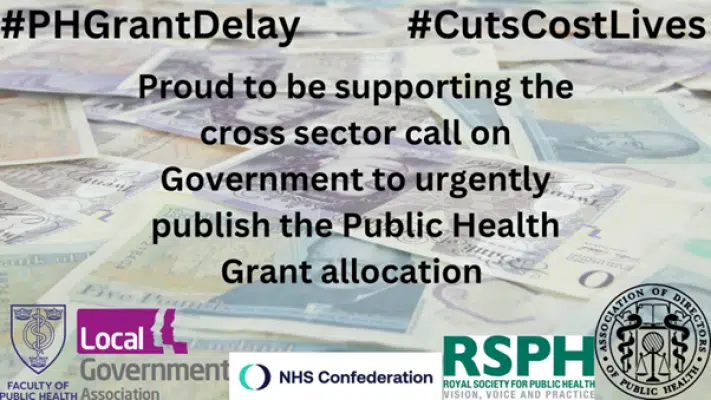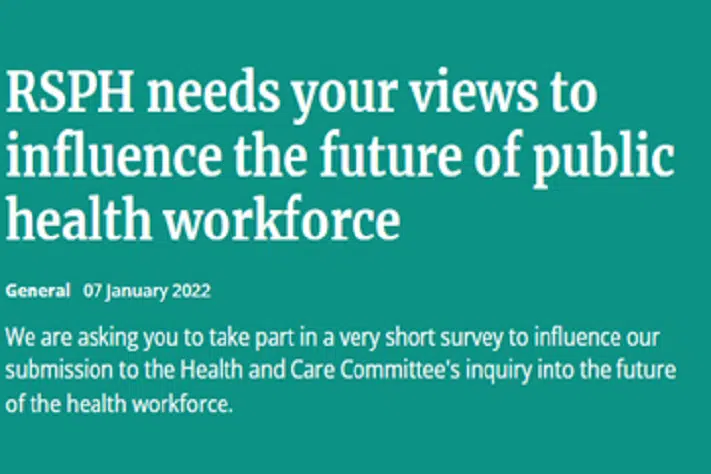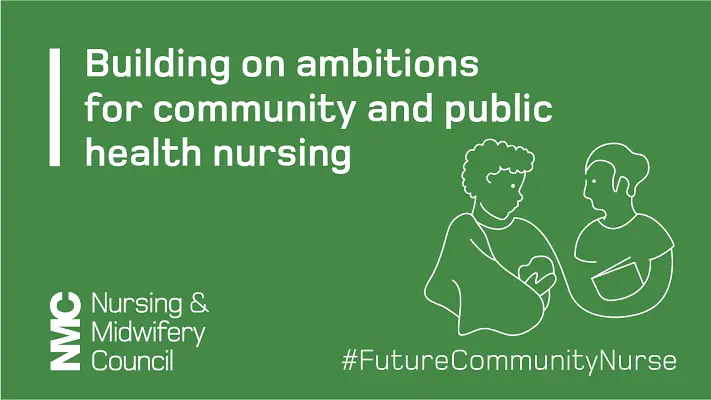Today, Rt Hon Andrea Leadsom MP announced the Public Health Grant allocations to local authorities in England for 2024/25. The public health grant provides the financial envelope for a wide range of services including health visiting. The scale of the funding is therefore an important measure of the Government’s priorities and their commitment to improving the nation’s health through prevention and early intervention.
Whilst there has been some additional discretionary funding for some policy areas (smoke-stop services, drug and alcohol addiction treatment, and the Start for Life Vision), no additional funding for health visiting services was forthcoming. The local government allocations for public health in 2024/25 represent a below inflation uplift of only 2.1% on 2023/24 (or a further cut to the grant in real terms). Overall, cuts to the public health grant since 2015 have amounted to more than £850 million. As a result, health visiting services have been scaled back and the health visitor workforce has been cut by more than 40% since 2015. Ultimately, families face the brunt of this, with many families missing out on the vital support that they need during the crucial earliest years of a child’s life.
Commenting on the announcement, Alison Morton, iHV CEO, said:
“Set against a backdrop of increased inflation, and increased pay, today’s public health grant settlement is a huge disappointment. It is nowhere near enough to deliver the Government’s own blueprint for health visiting and represents another cut to funding and a blow to services.
“Today’s announcement must also be viewed in the context of growing pressures on services, as more families are struggling with poverty and vulnerability that increase the demand for health visiting support. Cutting vital health visiting services is a false economy as we know that early intervention can make such a difference to a child’s outcomes and is much cheaper in the long run. We need to act now to turn policy rhetoric on prevention into action – today’s announcement sadly represents another wasted opportunity to turn this situation around.”
More and more reports highlight the dire state of child health and development across our nation that cannot be ignored – immunisation rates are falling, A&E attendance rates for children are increasing, more children are falling behind with their development, babies and children are being harmed by conditions that are entirely preventable, and health inequalities are widening. Health visitors see the realities of family life first-hand and the imperative to act was set out in our recent “State of Health Visiting” survey report published last month.
The iHV is not alone in its concerns about the lack of attention being given to babies and children in the UK. Just today, the hard-hitting report from the Academy of Medical Sciences has been covered in the news, highlighting a growing crisis across the early-years – with wide ranging evidence of declining health that takes root from preconception through pregnancy to the first five years of life.







